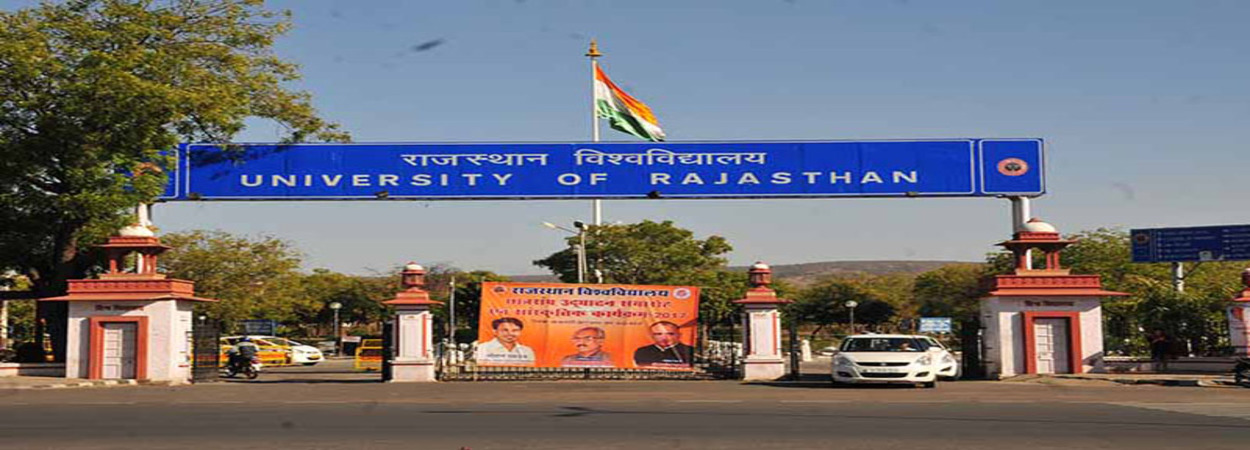Introduction about Ph.D. From Shri Lal Bahadur Shastri Rashtriya Sanskrit Vidyapith
Embarking on a Ph.D. journey is a transformative step that combines rigorous academic research with in-depth subject exploration. Shri Lal Bahadur Shastri Rashtriya Sanskrit Vidyapith, located in Delhi, stands as a premier institution dedicated to the preservation and advancement of Sanskrit knowledge and research. The Ph.D. program at this esteemed university is meticulously designed to foster scholarly innovation, critical analysis, and comprehensive research skills in the fields of Sanskrit literature, philosophy, history, and related disciplines. With a legacy steeped in academic excellence and cultural heritage, the institution offers a dynamic environment where tradition meets modern research methodologies.
The program is structured to provide doctoral candidates with an extensive understanding of classical texts, contemporary interpretations, and innovative research approaches that bridge ancient wisdom with modern academic inquiry. Candidates are encouraged to engage with diverse perspectives and interdisciplinary studies, enabling them to contribute original research that resonates both in academic circles and cultural discourse. The university prides itself on its state-of-the-art research facilities, a well-stocked library with ancient manuscripts and modern digital resources, and an experienced faculty dedicated to mentoring the next generation of scholars.
In addition to academic rigor, the Ph.D. program emphasizes ethical research practices and the importance of cultural preservation. Through seminars, workshops, and international collaborations, students gain exposure to global academic trends while staying rooted in traditional scholarship. The program not only prepares candidates for academic and research careers but also equips them with the skills to take on leadership roles in educational institutions and cultural organizations. This unique blend of tradition and innovation makes the Ph.D. journey at Shri Lal Bahadur Shastri Rashtriya Sanskrit Vidyapith an enriching and transformative experience.
Prospective candidates will find a nurturing academic environment that promotes critical inquiry, interdisciplinary research, and active engagement with both classical and modern scholarship. This program is ideally suited for those with a passion for Sanskrit studies, a dedication to research excellence, and a desire to contribute to the broader understanding of ancient knowledge systems in the contemporary world.
Fee Structure for Ph.D. in Shri Lal Bahadur Shastri Rashtriya Sanskrit Vidyapith
| Fee Component | Amount (INR) |
|---|---|
| Tuition Fee Per Year | 50,000 |
| Registration Fee | 10,000 |
| Total Fee (Approx.) | 60,000 per year |
Admission Process For Ph.D. in Shri Lal Bahadur Shastri Rashtriya Sanskrit Vidyapith
The admission process at Shri Lal Bahadur Shastri Rashtriya Sanskrit Vidyapith is designed to identify and nurture exceptional scholarly talent. Prospective candidates are evaluated based on their academic credentials, research aptitude, and passion for Sanskrit studies. The process is streamlined to ensure transparency and merit-based selection. Below are the detailed steps involved:
- Review the eligibility criteria, which generally require a master's degree in Sanskrit or related disciplines with excellent academic performance.
- Visit the official university website and navigate to the Ph.D. application section.
- Complete the online application form with accurate personal, academic, and research details.
- Submit all required documents including academic transcripts, degree certificates, and a detailed research proposal.
- Pay the non-refundable application fee through the secure online payment gateway.
- Attend a written test or research aptitude examination if specified by the university.
- Participate in an interview or group discussion to further assess research potential and academic fit.
- Receive the official admission notification via email or through the university’s admission portal.
Ph.D. Subjects in Shri Lal Bahadur Shastri Rashtriya Sanskrit Vidyapith
| Subject Code | Subject Name |
|---|---|
| SRS101 | Sanskrit Grammar and Linguistics |
| SRS102 | Vedic Literature and Philosophy |
| SRS103 | Classical Sanskrit Poetry and Drama |
| SRS104 | Sanskrit Epics and Puranic Studies |
| SRS105 | Comparative Studies in Sanskrit and Modern Languages |
Document Required For Ph.D. in Shri Lal Bahadur Shastri Rashtriya Sanskrit Vidyapith
To ensure a smooth application process and to verify the academic credentials of the candidates, the following documents must be submitted along with the application:
- Academic transcripts and degree certificates for all relevant qualifications.
- Detailed mark sheets from previous examinations.
- A comprehensive research proposal outlining the intended research area and methodology.
- A well-crafted Statement of Purpose (SOP) describing academic interests and career objectives.
- Letters of Recommendation from academic mentors or professionals familiar with the candidate’s work.
- Valid identification proof such as Aadhaar Card, Passport, or any government-issued ID.
- An updated Curriculum Vitae (CV) that highlights academic achievements and research experience.
- Any additional certificates or documents supporting work experience (if applicable).
Shri Lal Bahadur Shastri Rashtriya Sanskrit Vidyapith Ph.D. Syllabus
| Phase/Stage | Core Modules | Duration |
|---|---|---|
| Phase 1 | Foundations of Sanskrit Research, Literature Review, and Proposal Development | 6 Months |
| Phase 2 | Advanced Research Techniques, Data Collection Methods, and Critical Analysis | 1 Year |
| Phase 3 | Thesis Development, Academic Writing, and Seminar Presentations | 1-2 Years |
| Phase 4 | Thesis Submission, Defense, and Viva Voce Examination | 6 Months |
Shri Lal Bahadur Shastri Rashtriya Sanskrit Vidyapith Research Methodology
- Define a clear and focused research question related to Sanskrit studies.
- Conduct an extensive literature review to establish the historical and cultural context.
- Design a structured research framework incorporating both qualitative and quantitative methods.
- Utilize digital archives and traditional texts for comprehensive data collection.
- Apply critical analysis and interpretative techniques to assess primary sources.
- Ensure strict adherence to ethical standards and academic integrity throughout the research process.
- Document research findings meticulously and review progress periodically.
- Engage in collaborative research projects and interdisciplinary studies to enhance outcomes.
Shri Lal Bahadur Shastri Rashtriya Sanskrit Vidyapith Highlights
| Highlight | Description |
|---|---|
| Heritage and Legacy | Renowned for its deep-rooted tradition in Sanskrit education and research, preserving ancient knowledge. |
| Expert Faculty | Experienced scholars and researchers with profound expertise in Sanskrit literature and philosophy. |
| State-of-the-Art Facilities | Modern research centers, well-stocked libraries, and digital archives that support advanced studies. |
| Interdisciplinary Approach | Encourages cross-disciplinary research integrating traditional Sanskrit with modern academic methods. |
| Research Collaborations | Strong linkages with national and international academic institutions and research bodies. |
| Student Support | Comprehensive academic advising, career counseling, and research funding opportunities for doctoral candidates. |
How To Apply For Ph.D. in Shri Lal Bahadur Shastri Rashtriya Sanskrit Vidyapith
- Visit the official website of Shri Lal Bahadur Shastri Rashtriya Sanskrit Vidyapith and access the Ph.D. application portal.
- Download or fill out the online application form with accurate personal and academic details.
- Ensure that you meet the eligibility criteria and have all required documents ready.
- Submit the completed application form along with scanned copies of academic transcripts, certificates, and your research proposal.
- Pay the application fee via the secure online payment gateway provided on the website.
- Regularly check your email and the university’s admission portal for updates regarding your application status.
- Participate in any mandatory written tests, group discussions, or interviews as part of the selection process.
- After successful selection, follow the enrollment procedures outlined by the university for registration.
Courses After Ph.D. in Shri Lal Bahadur Shastri Rashtriya Sanskrit Vidyapith
- Post-Doctoral Research Fellowships
- Advanced Certification Courses in Sanskrit and Indology
- Specialized Workshops on Ancient Texts and Modern Interpretations
- Executive Education and Leadership Development Programs
- Collaborative Research Projects with International Universities
Shri Lal Bahadur Shastri Rashtriya Sanskrit Vidyapith Scholarship
Shri Lal Bahadur Shastri Rashtriya Sanskrit Vidyapith is committed to promoting academic excellence and supporting innovative research in the field of Sanskrit studies. The university offers a range of scholarships aimed at alleviating financial burdens for deserving Ph.D. candidates. These scholarships are awarded based on academic merit, research potential, and the quality of the proposed study. By providing tuition fee waivers, monthly stipends, and research grants, the university ensures that candidates can focus on their scholarly pursuits without financial constraints. In addition, scholarship recipients gain access to exclusive research resources, mentorship programs, and opportunities for participation in national and international conferences. This comprehensive support framework is designed to foster an environment where academic innovation and cultural preservation thrive.
- Merit-Based Scholarships for outstanding academic performance
- Research Grants for innovative and impactful research proposals
- Need-Based Financial Assistance for eligible candidates
- Stipends and Tuition Fee Waivers for full-time doctoral research
- Special Funding for participation in academic conferences and workshops
Shri Lal Bahadur Shastri Rashtriya Sanskrit Vidyapith FAQ's Regarding Ph.D.
- What are the eligibility requirements for the Ph.D. program?
Candidates must possess a master's degree in Sanskrit or a closely related field with a strong academic record and a clear research proposal.
- How can I apply for the Ph.D. program?
Applications are submitted online through the official website along with all required documents such as transcripts, certificates, and a research proposal.
- Is there an entrance exam for admission?
Yes, candidates may be required to appear for a written test or research aptitude exam followed by an interview.
- What is the duration of the Ph.D. program?
The Ph.D. program typically lasts between 3 to 5 years, depending on the research area and progress of the candidate.
- What types of research facilities are available?
The university offers modern research centers, extensive libraries, and digital archives that support advanced studies in Sanskrit.
- Are scholarships available for Ph.D. candidates?
Yes, the university provides various scholarships based on merit, research potential, and need-based criteria.
- Can international students apply?
Yes, the program is open to both domestic and international candidates who meet the eligibility criteria.
- What documents are required during the application process?
Applicants need to submit academic transcripts, degree certificates, a detailed research proposal, letters of recommendation, and valid identification proof.
- How is the Ph.D. thesis evaluated?
The thesis is evaluated by a panel of experts through a rigorous review process that includes a viva voce examination.
- What career opportunities are available after completing the Ph.D.?
Graduates can pursue academic positions, research roles in educational and cultural institutions, and leadership roles in various scholarly organizations.















